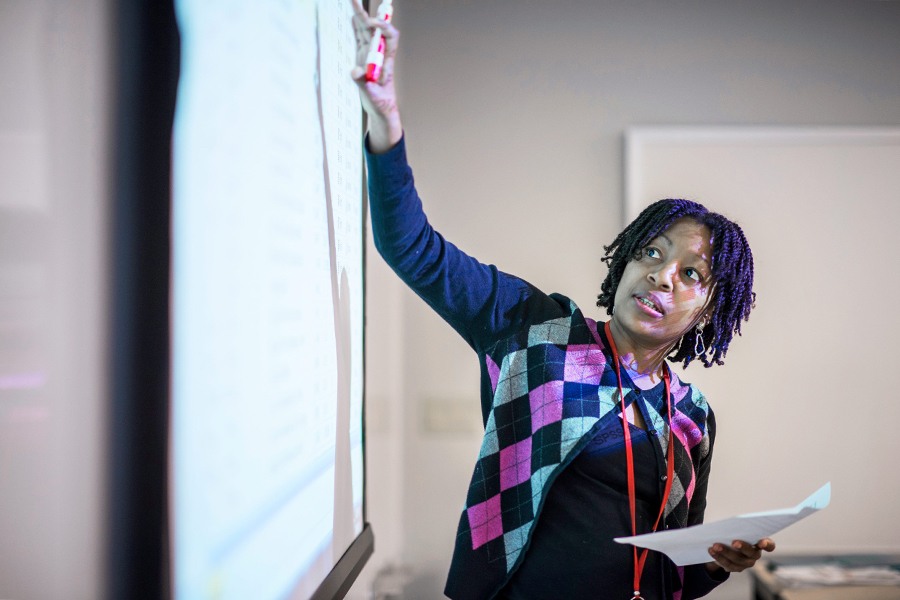Building Diversity Is Only the First Step Leaders Need to Take

Melissa Logue, Ph.D., assistant professor at Saint Joseph’s University
After cries of “no justice, no peace” rang through Philadelphia and across the country these past few months, leaders have reconsidered how their organizations could better serve their communities. Diversity initiatives take only the first step in establishing equity, though. True change will only come with creating inclusion and belonging, says Melissa Logue, Ph.D., an assistant professor of sociology at Saint Joseph’s University.
“Diversity has for some people, including some people of color, become synonymous with just race, which is not only what it means,” Dr. Logue explains. “There are different types of diversity that we each carry with us. Some are more salient and more impactful on our identity than others.” Additional examples may include regional, cultural, religious, age and gender diversity, but even when diversity exists, inclusion requires additional action.
“When you’re trying to be inclusive, you’re opening access in a way that gives everybody a seat at the table so that everyone is involved in how that institution operates or impacts people,” Dr. Logue says. That in turn creates belonging, enriching the organization in more ways than one.
“The more people feel this sense of belonging to that institution, and that their contributions and their very presence in that institution are valued, the happier they’re going to be,” she explains. “If it’s a job, the greater the job satisfaction is going to be. The more positive they feel about it, the more they’re going to want to make sure that that institution is successful.”
This fall, master’s students at Saint Joseph’s University will enroll in an all-new Diversity, Inclusion and Belonging Concentration co-taught by Dr. Logue. A joint offering from the Criminal Justice and Organization Development and Leadership programs, the concentration will focus on what diversity and inclusion truly mean within the context of management, human resources, counseling and law enforcement.
Given the change-making potential of its students, the six-course program aims to challenge assumptions and raise important policymaking questions. “What are the potential unintended consequences if I implement this policy? How do I implement a certain policy in my organization in a way that is not divisive, that is not exclusive and disenfranchising certain groups disproportionately to others,” Dr. Logue suggests. “In rethinking their assumptions, students can channel that in a way that is effective in how they engage in their leadership.”
Although many graduates of the course will pursue roles as directors, managers, federal agents, law enforcement officers and probation or parole officers, the knowledge gained will apply to any career path.
Says Dr. Logue, “Having that understanding about inclusion, about diversity and about how to create this sense of belonging among people I think is important, regardless of what dimension that you may get into professionally.”
Take the next step in your career and learn more about the Organization Development and Leadership and Criminal Justice master’s degree programs offered at Saint Joseph’s Unversity.
This is a paid partnership between Saint Joseph's University and Philadelphia Magazine


